Sound Medicine: Physicians Reflect on the Harmony Between Medicine and Music
“Music can pierce the heart directly; it needs no mediation.”
— Oliver Sacks, “Musicophilia”
M
usic is powerful—it can uplift, console, soothe, and inspire. It facilitates connection and communication with other musicians, those listening, and the music itself. The genre hardly matters. Music has a way of unlocking emotions that are otherwise difficult to express or access. For many physicians, music and musicianship are essential to who they are and how they practice. For this special feature, we asked students and alumni to share with us how being a musician has impacted their practice of medicine.
To you, our reader, how has music influenced your practice? Please share on Instagram and tag us or send us a direct message.
Danielle Liu (’26)
The beauty of music is in how it touches lives tangibly without any direct physical intervention. Music has impacted my practice of medicine in several ways: daily practice taught discipline, ensemble training necessitated improved communication skills, and expectations for rehearsal and performance etiquette begot professionalism. However, the largest impact of music on my personal practice of medicine is how it contributes to my emphasis on and passion for whole person care. Music, just like the best part of medicine, touches a core part of who we are—our souls. Music powerfully impacts a person’s emotional well-being—bringing a person to tears or uplifting a tired soul. In a similar way, as a clinician, it is essential for me to also nurture patients’ souls with every gesture, conversation, and action.
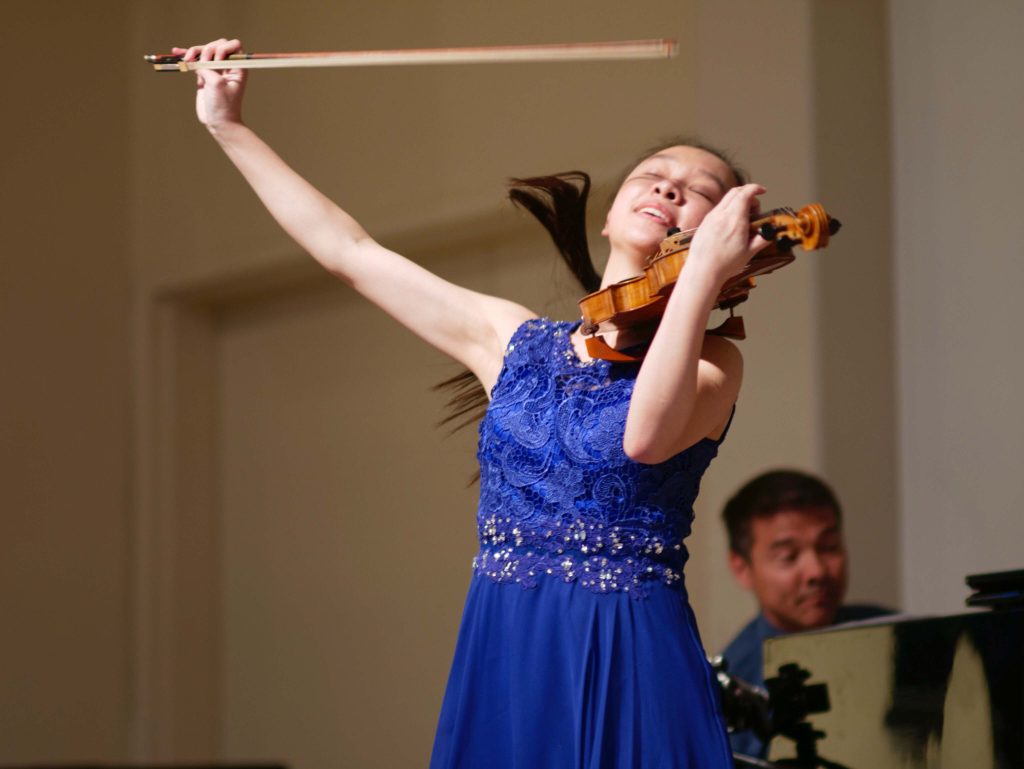
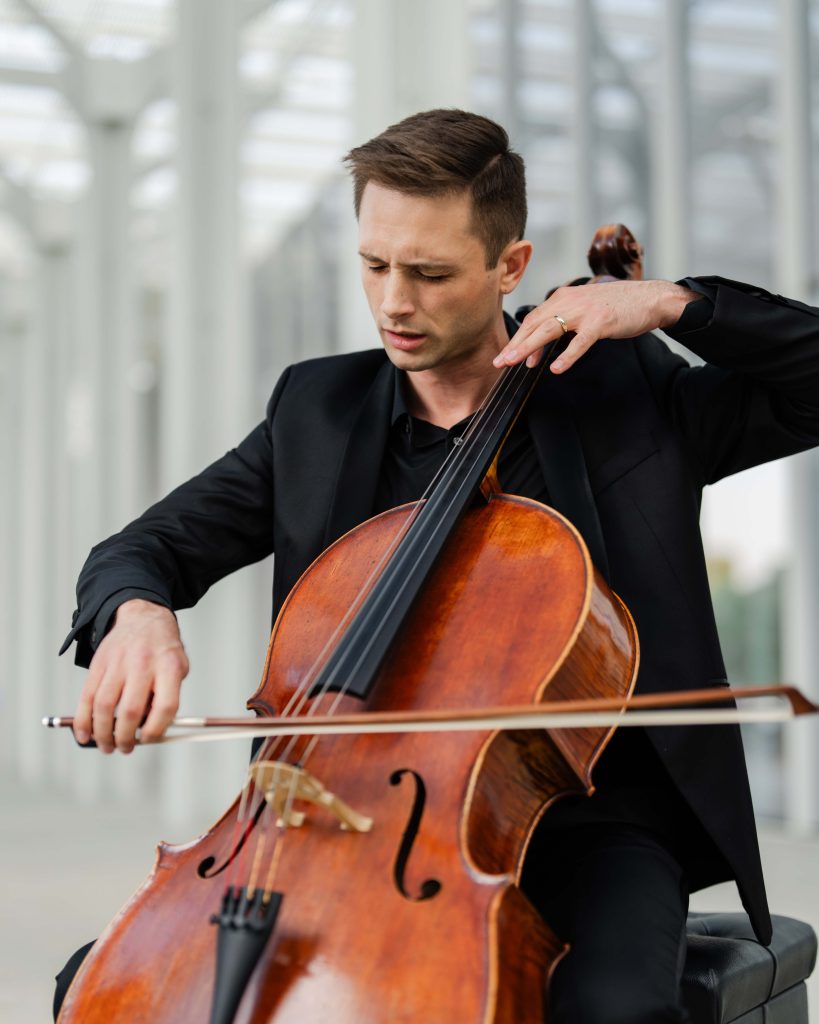
Quinn Kalmansson (’26)
In an ideal performance, the musician acts as a prism that transmits a work of music from the abstract into the full spectrum of color with measured input from the ego. The musician is aware of the emotions coming through and feels them to some degree, but just enough to guide them into the sound, out into the hall, and into the hearts of the audience, where they are experienced fully. Similarly, I have noticed that in the most productive physician-patient interactions, the physician is aware of the emotional state, intellectual capacity, socioeconomic background, and cultural background of the patient and is reactive to them, but only just enough to facilitate desirable health outcomes for the patient. While just the right balance can be difficult to achieve, I have found that doing so makes my work emotionally and spiritually restorative, whether on stage or in the exam room.
Francis Chan ’94
Starting as a ‘solo’ musician at the age of 5 has had its ups and downs for me. I think the benefits have outweighed any of the challenges. In general, being a musician requires a certain global level of commitment to hone a talent, discipline to individual practice to refine skills, and willingness to fail. It is in each failure, that a musician will say to themselves, I can do better. So there must be a willingness to persevere. As I grew up, I ended up participating in or leading out in a number of ensembles, including chamber groups, symphonic band, orchestras, handbell choirs, and I even sang in choirs. In these settings it is no longer just worrying about yourself but your role and collaborating as a group member. This means not playing at your preferred intonation, tempo, or dynamic, but in a way that makes the ensemble successful. In the end, this requires a willingness to give of yourself and contribute to the ‘team’ of musicians.
As I reflect on the values here at Loma Linda University Health, being a musician has solidified the following in me: excellence is something to strive for; humility is knowing you are not perfect, and there is always room for improvement; integrity is owning up to your failures and what you are capable of; teamwork is knowing you are a part of something larger; and wholeness is the extremely satisfying experience of creating music for others to enjoy and receive a blessing.
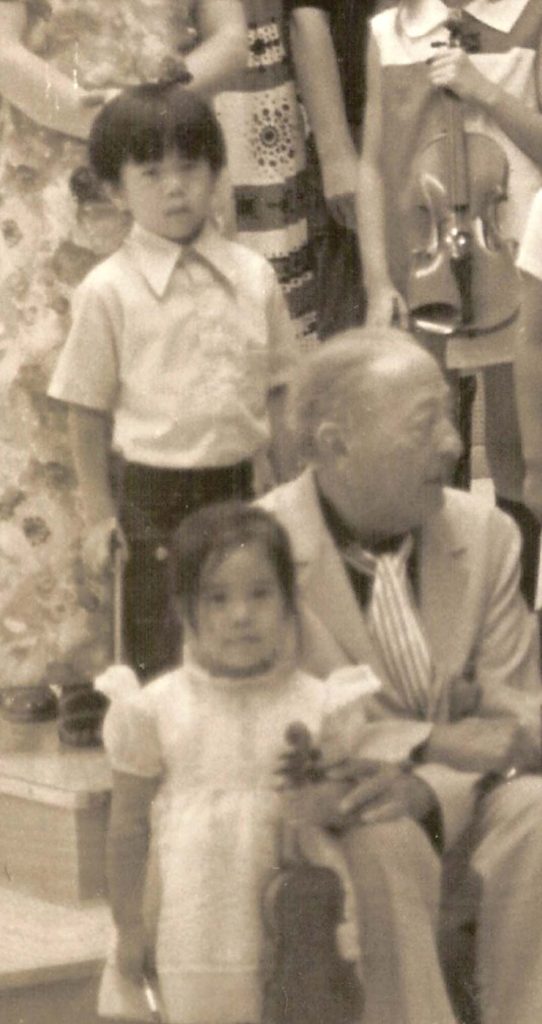
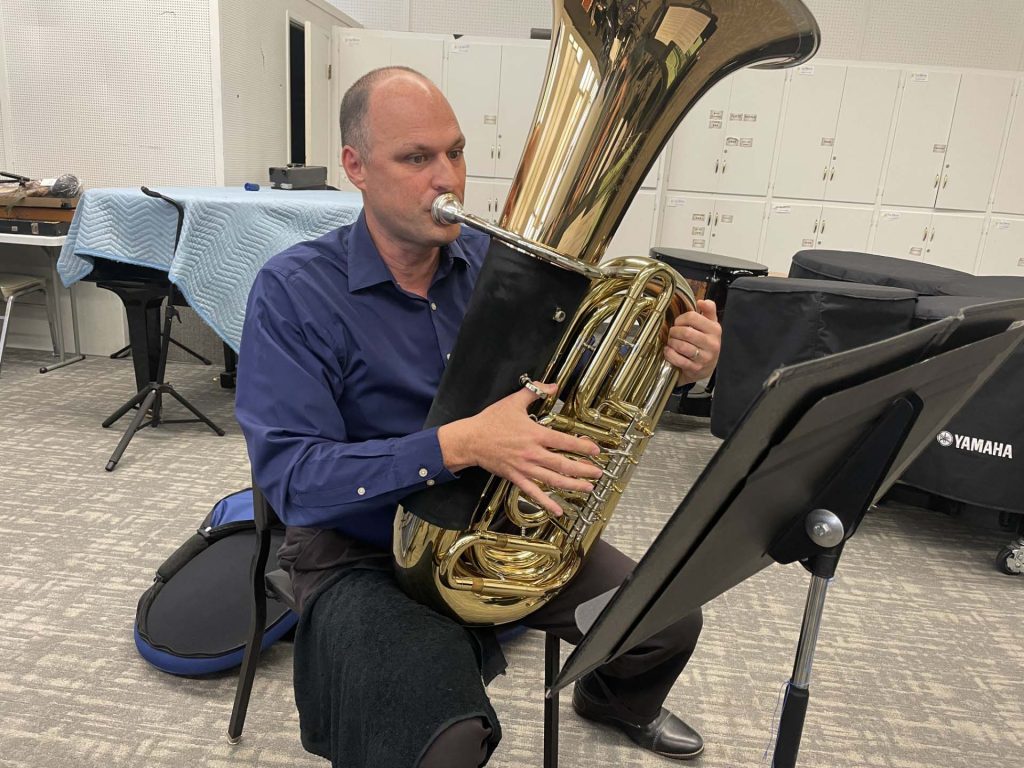
Edward Javor ’98
Music = joy. Whether it’s playing or just listening, music simply improves my quality of life. In my experience playing in ensembles, music and medicine share the requirements of concentration and integration. That may explain my love for both. The difference is, music adds energy through its inspiration. I’ve had the privilege of playing tuba with the La Sierra University Wind Ensemble for almost my entire career. Each noon rehearsal recharges and sharpens my mind and helps me make it through the rest of my day.
Daniel K. Rogstad ’09, PhD
Music profoundly touched my life from before I was born, as my parents and siblings played classical music to me while in the womb. I started singing at age 2, playing piano by ear at age 6, taking piano lessons from ages 8 to 23, and playing for the church music team and my school choirs beginning at age 12. When I decided at age 16 to go into medicine, it was only because I was assured that I could continue to be a musician and that music would enhance instead of hinder my medical career. I have had the privilege of blessing my patients in special ways, whether by playing a personal concert for them or giving them recordings of my music. The deep emotions I feel when listening to, playing, or composing music have prepared me, I am convinced, to more deeply connect to my patients relationally, emotionally, and spiritually.
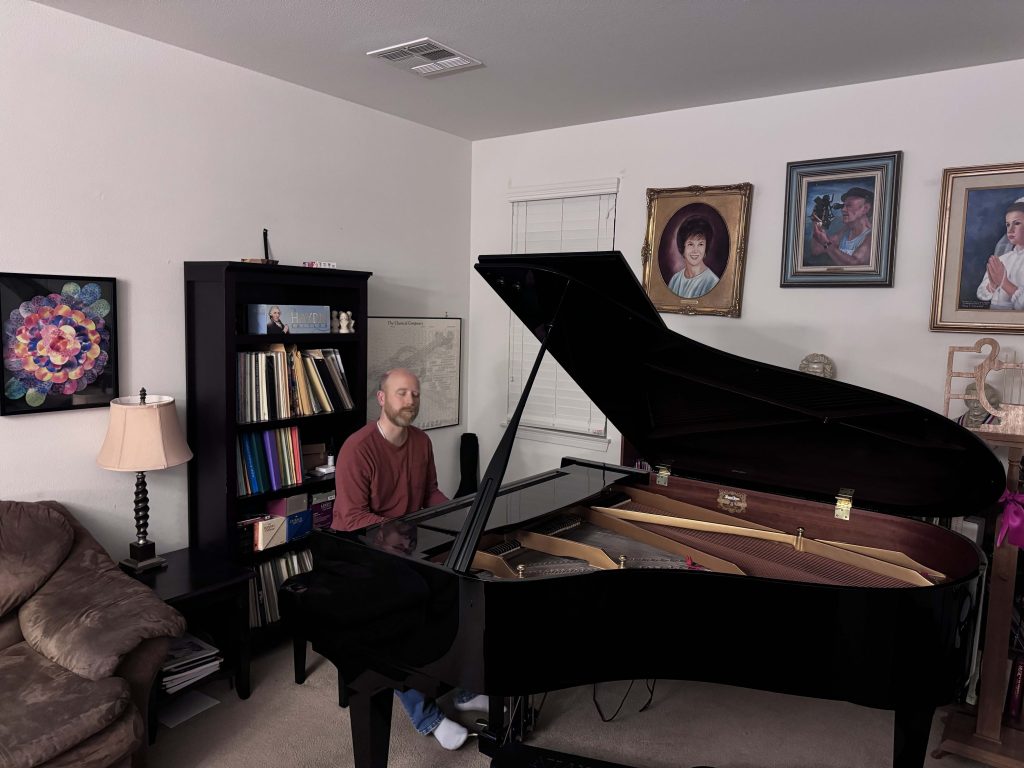

Sharon K. Riesen ’82
Music has given me many wonderful opportunities for connecting with others in an uplifting way. Being involved with music at Loma Linda University Church has been an especially unique experience because of the number of physicians and other health care providers involved in the music community here at LLU. Playing the timpani has been a great source of joy and stress release for me. Music has also been a resource for connecting with many of my patients who enjoy talking about music.
In a nutshell, music has provided me with a source of community, stress release, and personal connections, all of which make me a better doctor.
Sondra E. Shields ’89
Medicine may be a data-driven, left-brained exercise, but I find great joy in the counterbalance of right-brained activity associated with music. From the energy that comes from perky music despite my fatigue, to comfort in heartache from soothing compositions, music helps me feel I am not alone in my own emotional experiences. This sense of shared humanity has no doubt sharpened my empathy with patients. But for me, music goes beyond its emotive aspect or lyrical meaning. Thanks to the left-brained training I received at LLUSM, I also enjoy analyzing the complexity of musical structure. It provides a break from work thinking to play thinking, like the challenge of putting together a puzzle—but this time, the jigsaw pieces are rhythm, harmony, and melody. What a delight it is when the whole picture comes into view. This pleasure is highest when I perform in the musical community of my musician daughters, a place where medicine, motherhood, and music meld!
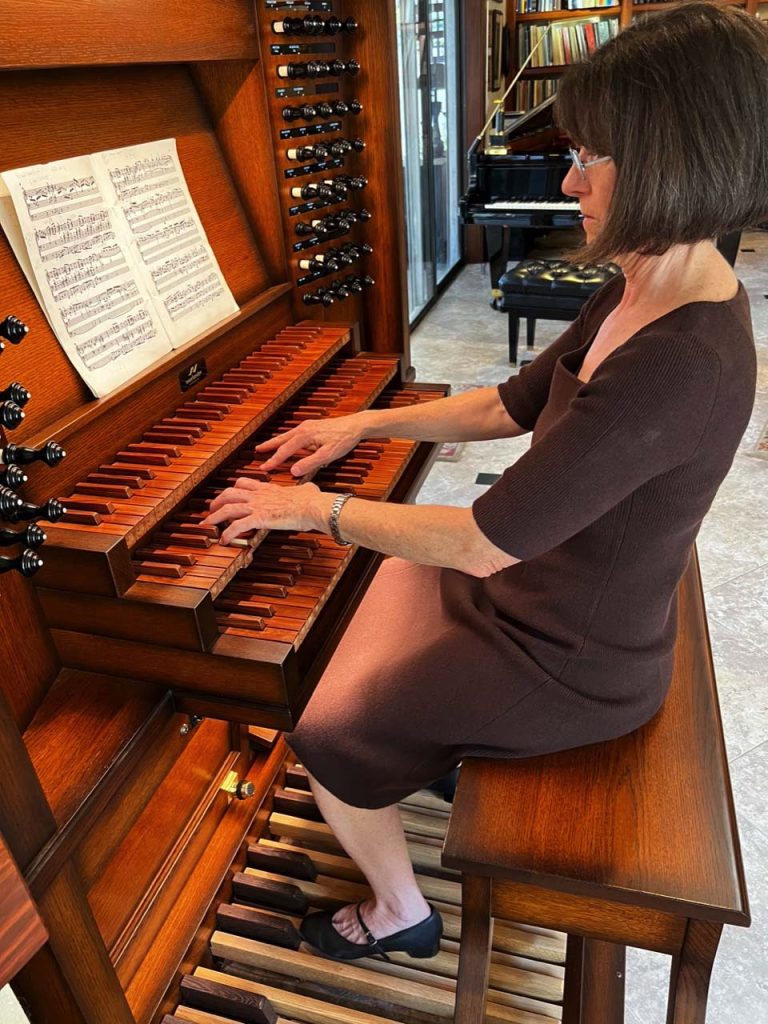
About the Musician Physicians
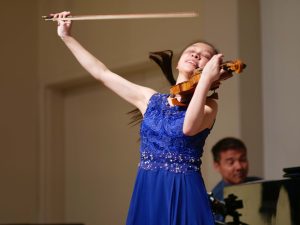
Danielle Liu (’26) has performed violin in venues such as the Renée and Henry Segerstrom Concert Hall and Carnegie Hall, and she has been a featured soloist with the Pacific Symphony, The Chapman Orchestra, and the OCMD Orchestra. She continues to teach and perform in the Inland Empire, Orange County, and Los Angeles areas whenever her schedule allows. She plans to be a psychiatrist.
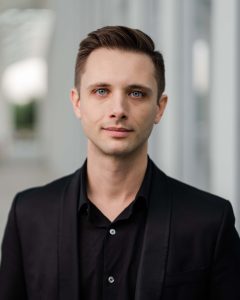
Quinn Kalmansson (’26) is a third-year medical student, a Health Ministries Fellowship Endowment Fellow, and a professional cellist. He earned a Master of Music and a Master of Musical Arts from Yale School of Music, both on full merit scholarship, and a Bachelor of Music from the Cleveland Institute of Music.
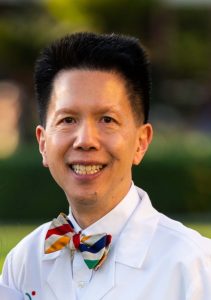
Francis Chan ’94 is chair of pediatrics at the Loma Linda University School of Medicine. A native of Loma Linda, he has supported the music ministry department at Loma Linda University Church since his childhood.
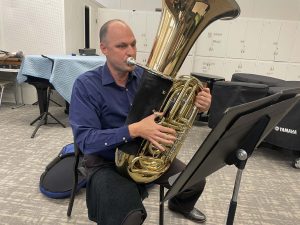
Edward Javor ’98 is an endocrinologist at Kaiser Permanente, Riverside, California. He has played the tuba for most of his life.
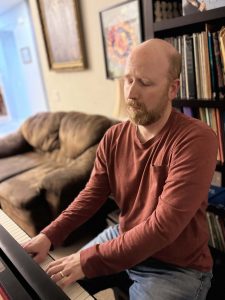
Daniel K. Rogstad ’09, PhD, is the senior associate dean for medical student education at LLUSM and practices infectious diseases. As a part of his self-care regime, he listens to music and plays the piano nearly every day.

Sharon K. Riesen ’82 has been a pediatric educator since joining LLUSM’s department of pediatrics in 1989. She started playing the tympani in high school.
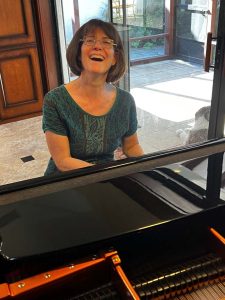
Sondra E. Shields ’89 is an anesthesiologist who, as a collegiate, attended the Vienna Academy of Music and studied piano with Erna Heiller for a year in Vienna, Austria. She graduated from Southern Adventist University with a degree in piano performance. She is an active musician in her community.
Published in the Fall/Winter 2024 ALUMNI JOURNAL.

